

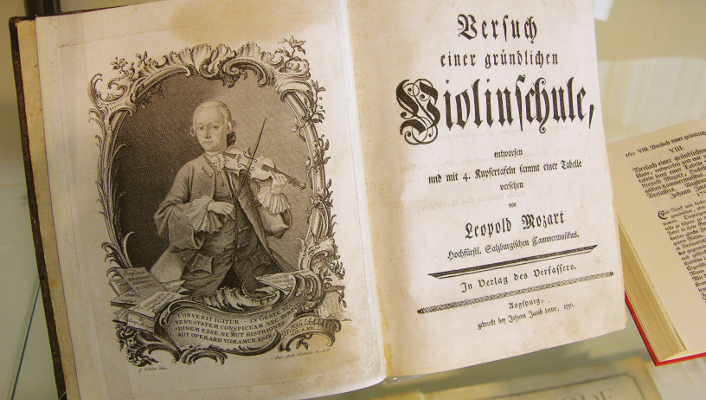
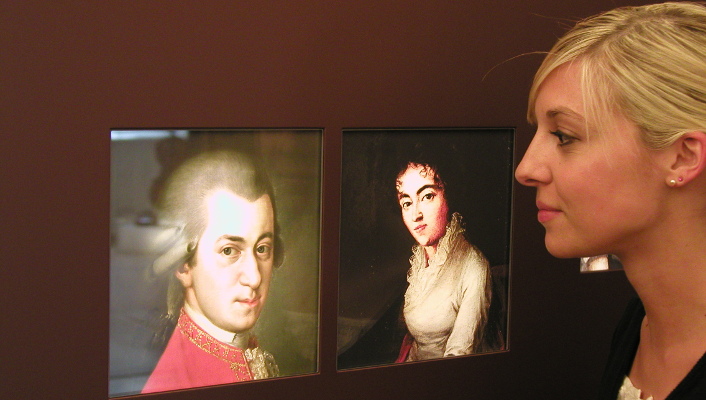
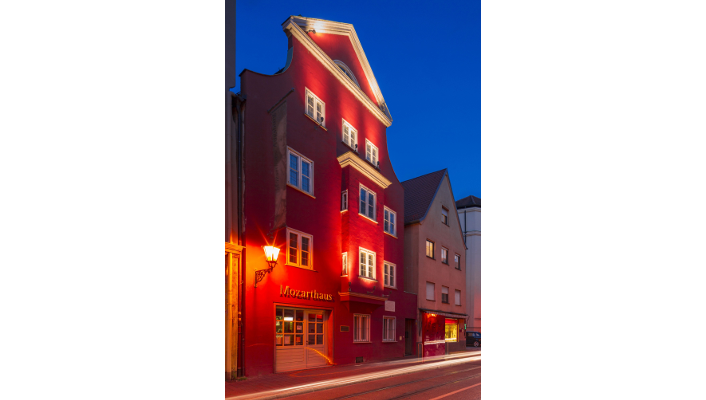
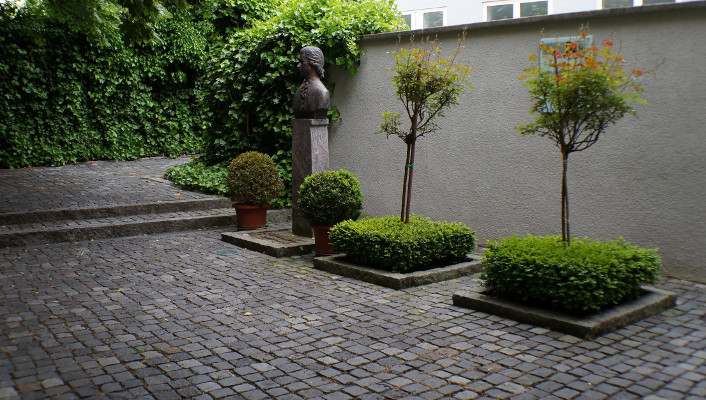
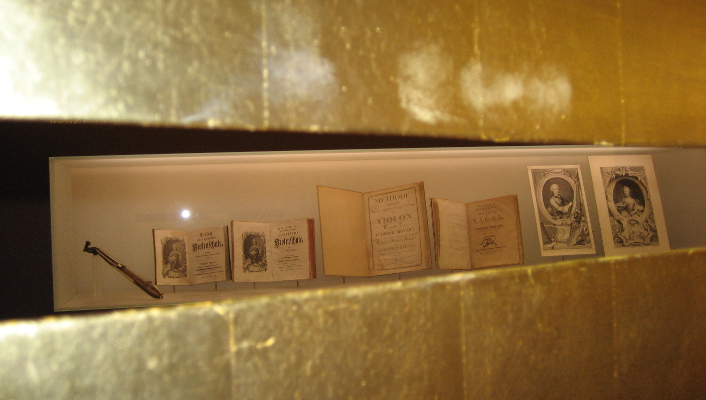
Frauentorstraße 30
86152 Augsburg
Telefon +49.821.650 713 80
Dienstag bis Sonntag 10.00–17.00 Uhr
sowie an Feiertagen auch montags geöffnet
Die Ursprünge der Mozarts liegen in Schwaben. Das Mozarthaus zeigt mit seiner Ausstellung die Geschichte der Familie. Hier wurde Leopold Mozart, der Vater von Wolfgang Amadé, 1719 geboren. Leopold war Komponist und Vizekapellmeister, seine 1756 veröffentlichte „Violinschule“ machte ihn europaweit als Musikpädagogen bekannt. Früh erkannte er die Begabung seines Sohns und bildete ihn zum Komponisten aus.
Wolfgang Amadeus war fünf Mal – 1763, 1766, 1777, 1781 und 1790 in seiner Vaterstadt. 1777 erlebte er beim zweiwöchigen Aufenthalt in Augsburg wohl eine kleine Romanze mit der Augsburger Cousine Maria Anna Thekla Mozart. Von 1777 bis 1781 entstanden so Mozarts berühmte "Bäsle-Briefe", die an Augsburg erinnern.
Das Mozarthaus besitzt mehrere Sammlungen. Stiche, Bücher, handschriftliche Briefe, Noten und Musikinstrumente sowie ein Audioguide (Deutsch, Englisch, Japanisch) führen Besucher ins 18. Jahrhundert und durch das Leben und die Musik der Mozarts. Ein Multimedia-Raum sorgt für interaktives Museumsvergnügen. Mit einer Kombikarte kann man zugleich den nur wenige Gehminuten entfernten Kleinen Goldenen Saal besichtigen, der an Leopold Mozarts Schulzeit erinnert.
Informationen zu aktuellen Veranstaltungen der Region Augsburg unter www.augsburg-tourismus.de.
Deutschland verfügt über musikalische Traditionen und Nachlässe von außerordentlichem Wert: Händel, Schütz und Bach, Beethoven, Mendelssohn, Schumann, Brahms und Wagner sind - um nur einige Namen zu nennen - weltweit bekannte und geschätzte Komponisten. Ihr Wirken hat eine einzigartige Musiklandschaft wesentlich mitgeformt.
Zahlreiche Orchester, Chöre und Ensembles, renommierte Musikfestivals und -reihen, Musikerhäuser mit Museen, öffentliche Archive und Bibliotheken, aber auch private Sammlungen bewahren ihr musikalisches Erbe.
Diesen unschätzbaren Fundus gilt es immer wieder neu zu beleben und für die Gegenwart zu erschließen. Den in der Arbeitsgemeinschaft Musikermuseen Deutschlands zuusammengeschlossenen Häusern kommt dabei eine wichtige Rolle zu. In ihnen begegnen wir dem Werk von Musikern und Komponisten, die die Kulturnation Deutschland außerordentlich bereichert haben. Über das individuelle Portrait, über die Vermittlung des einzelnen Œuvres hinaus tragen die Musikermuseen aber auch zur Pflege musikalischer Tradition insgesamt bei. Die vorliegende Broschüre unterstreicht diesen Aspekt der Zusammenschau, und sie lädt zu einer Reise in die Musikgeschichte Deutschlands ein. Ich wünsche diesem Reiseführer regen Gebrauch und eine große Resonanz.
Bernd Neumann, MdB
Staatsminister bei der Bundeskanzlerin
Der Beauftragte der Bundesregierung für Kultur und Medien
Zitat: Vorwort zur Broschüre der Arbeitsgemeinschaft "Musikermuseen in Deutschland", 2007.